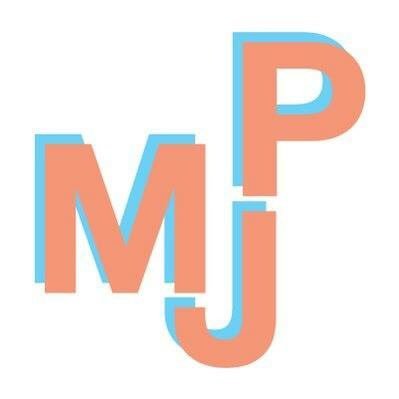Now that summer has officially begun, the heat is on: Get your entries ready for contests with a deadline of June 30! Prizes include $130,000 Canadian (approximately $96,732) for a published poetry collection, $15,000 and publication for a story collection, €3,000 (approximately $3,217) for a short story, and other generous awards. All contests have a cash prize of $1,000 or more, and two have no entry fee. Why not throw your hat in the ring?
Anthology Magazine
Poetry Competition
A prize of €1,000 (approximately $1,072) and publication in, plus a subscription to, Anthology Magazine will be given annually for a single poem. Rachael Hegarty will judge. Entry fee: €12 (approximately $13) by June 30, or €18 (approximately $19) thereafter, until October 31.
Barrow Street Press
Book Prize
A prize of $1,500 and publication by Barrow Street Press is given annually for a poetry collection. Nathalie Handal will judge. Entry fee: $25 ($28 for electronic submissions).
Bauhan Publishing
May Sarton New Hampshire Poetry Prize
A prize of $1,000, publication by Bauhan Publishing, and 50 author copies is given annually for a poetry collection. Brad Crenshaw will judge. Entry fee: $30.
Cider Press Review
Editors’ Prize Book Award
A prize of $1,000, publication by Cider Press Review, and 25 author copies is given annually for a poetry collection. Entry fee: $26.
Griffin Trust for Excellence in Poetry
Griffin Poetry Prize
A prize of $130,000 Canadian (approximately $96,732) is given annually for a poetry collection written or translated into English by a living poet or translator from anywhere in the world and published during the previous year. Finalists receive $10,000 Canadian (approximately $7,441) each for their participation in the shortlisted authors event to be held in Toronto in June. Publishers may submit four copies of a book published between January 1 and June 30 by June 30. Entry fee: None.
Lascaux Review
Prize in Flash Fiction
A prize of $1,000 and publication in Lascaux Review online and in print is given annually for a work of flash fiction. Previously published stories are eligible. Entry fee: $15.
Los Angeles Review
Literary Awards
Four prizes of $1,000 each and publication in Los Angeles Review are given annually for a poem, a short story, a short short story, and an essay. M. Soledad Caballero will judge in poetry, Carlos Allende will judge in fiction, John Weir will judge in flash fiction, and Chelsey Clammer will judge in creative nonfiction. Entry fee: $20.
Omnidawn Publishing
Chapbook Contest
A prize of $1,000, publication by Omnidawn Publishing, and 20 author copies is given annually for a poetry chapbook. Brody Parrish Craig will judge. Entry fee: $30.
Poetry London
Poetry London Prize
A first-place prize of £5,000 (approximately $6,044), a second-place prize of £2,000 (approximately $2,417), and a third-place prize of £1,000 (approximately $1,209) are given annually for a single poem. The winners will also receive publication in the Autumn Issue of Poetry London and an invitation to read at the issue’s launch, held at the Southbank Centre in London. Rachel Long will judge. Entry fee: $12.
The Moth
International Short Story Prize
A prize of €3,000 (approximately $3,217) is given annually for a short story. A prize of a weeklong retreat at Circle of Misse in Missé, France, with an open-ended travel stipend, and a prize of €1,000 (approximately $1,072) are also given. The winners will be published in the Irish Times. Ottessa Moshfegh will judge. Entry fee: €15 (approximately $16).
University of Pittsburgh Press
Drue Heinz Literature Prize
A prize of $15,000 and publication by University of Pittsburgh Press is given annually for a collection of short fiction. Writers who have published at least one previous book of fiction or a minimum of three short stories or novellas in nationally distributed magazines or literary journals are eligible. Entry fee: None.
University of North Texas Press
Katherine Anne Porter Prize
A prize of $1,000 and publication by University of North Texas Press is given annually for a collection of short fiction. Entry fee: $25.
Winning Writers
North Street Book Prize
A grand prize of $10,000 and eight additional prizes of $1,000 each are given annually for self-published and hybrid-published books (works published by presses that coordinate all aspects of book publication in exchange for a fee) of poetry, fiction, genre fiction, creative nonfiction, children’s literature, middle grade books, graphic narrative, and art books. Each of the winners will also receive publication of an excerpt on the Winning Writers website; a marketing consultation with author and publishing consultant Carolyn Howard-Johnson; $300 in credit at BookBaby, a distributor for self-published authors; three months of Plus service from Book Award Pro (plus $500 in account credit for the grand prize winner), a literary award database and submission platform; and free advertising in the Winning Writers e-mail newsletter. Ellen LaFleche and Jendi Reiter will judge. Entry fee: $75.
Visit the contest websites for complete guidelines, and check out the Grants & Awards database and Submission Calendar for more contests in poetry, fiction, creative nonfiction, and translation.









